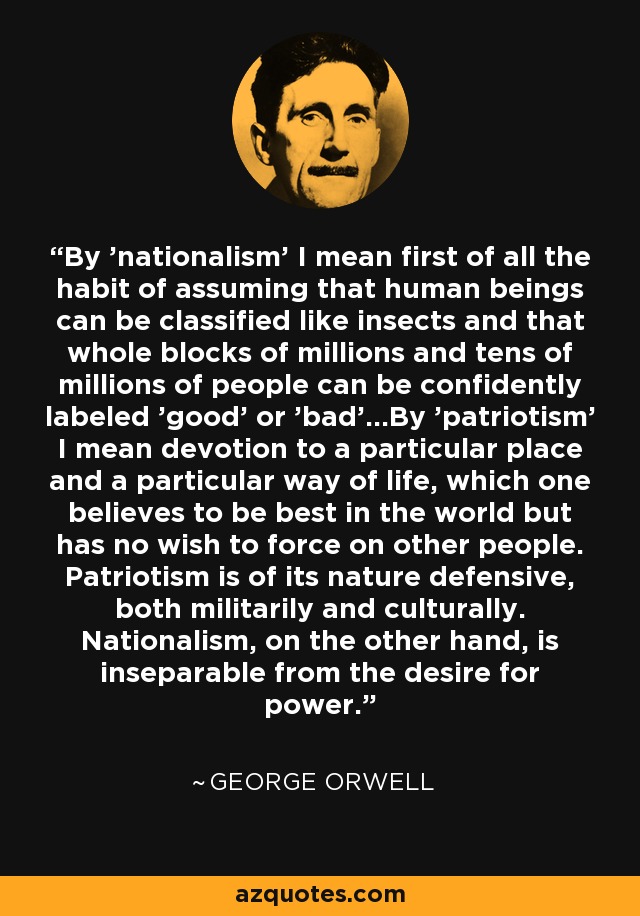- Sep 16, 2012
- 57,936
- 51,522
- 3,605

George Orwell
Notes on Nationalism
George Orwell: Notes on Nationalism
Notes on Nationalism, the essay of George Orwell. First published: May 1945 by/in Polemic, GB, London
orwell.ru

